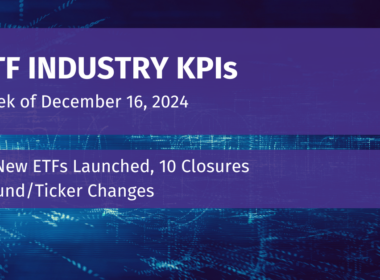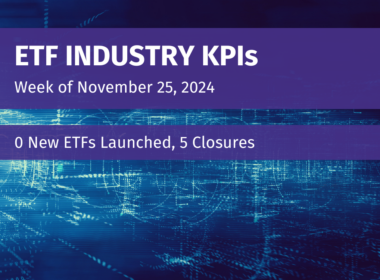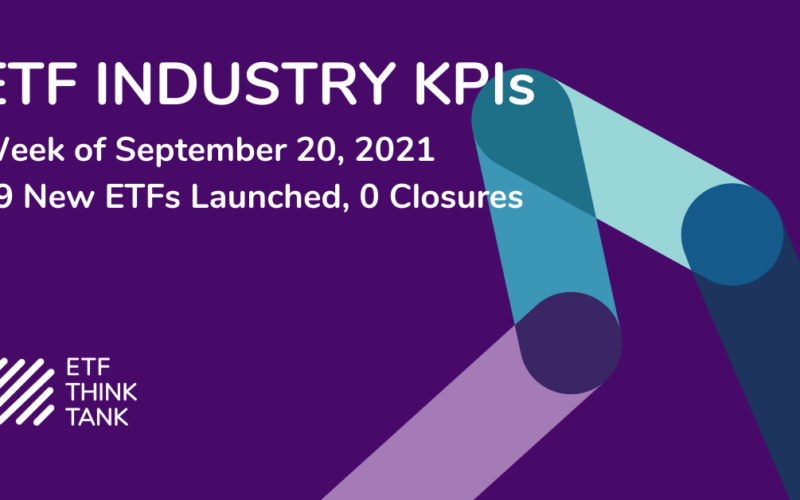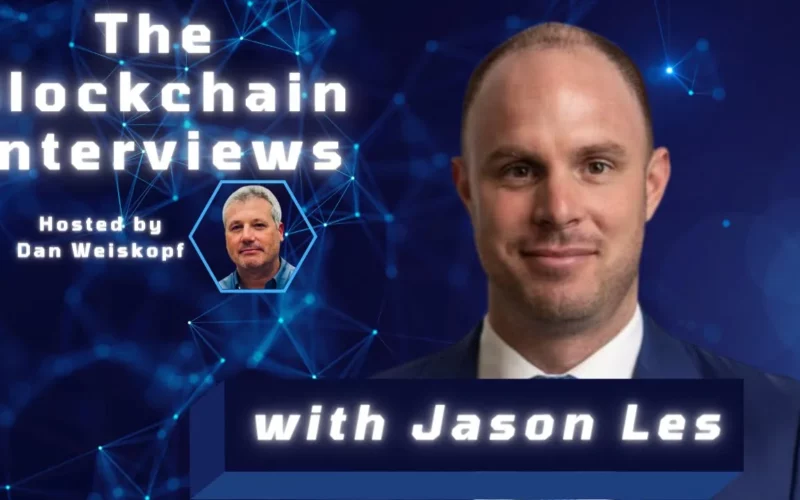Eric Basmajian, macroeconomic expert, and the founder of EPB Macro Research, returned to the ETF Think Tank recently to offer up his current take on the global economic landscape. With inflation rates elevated, the Fed looking to begin acting on its tapering plans and the latest unrest in the Chinese real estate market, his opinions come at a very opportune time.
The conversation started with a review of the events that have occurred over the past couple weeks. Basmajian sets the table by explaining that we were in a global industrial upturn earlier this year, but growth began to dip as inflation rates rose. As real income growth falls, there are a lot of knock-off effects. Since April, growth has been decreasing and, while many assume it hits a floor where it bottoms out, in reality we don’t know where it’s going to stop. The markets started to adjust to this and we saw a rotation into safety and quality. This week, the Fed came in slightly hawkish and interest rates adjusted upward accordingly.
Not surprisingly, the events in China came up early and often. Basmajian notes that the real estate sector has been the primary driver of cyclical changes, but changes need to happen in order make the sector more sustainable. We need to see slower growth because the country has gotten ahead of itself in terms of construction. China may be experiencing 6% GDP growth, but if they’re building hundreds of empty buildings, you run the risk of severely negative GDP and inflationary impacts. If one looks 3-5 years out in the future and those apartments aren’t sold, you’ve got a disinflationary pulse in the economy. China is in a difficult spot today trying to sustain high economic growth with the background of low population growth. It may take 6-8 years for this entire story to play out.
Basmajian also sees structural problems on the labor front. He mentions the positive wage growth data we’ve seen recently but emphasizes that these are nominal figures. If nominal wages rise by 4%, but inflation is 5%, there’s no wage growth there and people are actually losing purchasing power. Nominal wages won’t be able to deviate much from nominal GDP growth and, given the amount of labor sitting on the sidelines today, we need to increase productivity to make up that gap. Higher productivity requires capital investment and we’re not seeing a lot of that today. The economy is attempting to grow GDP with fewer people, and we haven’t yet figured out what to do with that pool of unused labor. Currently, they’re being supported by government transfer payments, but over time that weighs on productivity.
The idea of high rent inflation impacting overall inflation rates has been a popular topic lately. Basmajian says that people assume if rent inflation is high then overall inflation will likely get out of control. That may or may not be true and he emphasizes that it’s important to understand all components of those CPI numbers. In the current environment, it turns out that it’s actually durable goods driving higher inflation for a few reasons. Supply chain issues are the obvious one, but it’s also because consumers were directing their discretionary spending towards physical purchases since the services-related opportunities were closed during the pandemic. An inflation analysis is not useful by looking at just one component.
How does the arrival of institutional buyers, such as BlackRock, entering the single-family housing market impact the sector as a whole? Basmajian thinks that it will compress the rate of return potential for that asset class. Institutional buyers have specific advantages, such as access to capital and lending rates, that many retail buyers don’t. If real estate, as a hypothetical example, offered an 8-9% return potential before, residential real estate may only return 3-4%. It’s just another asset class that’s been financialized and it’s going to drive the rates of return down.
As a final note, Basmajian reiterated his stance that stimulus payments usually provide a short-term boost but tend to be a long-term drag on the economy. If the government were able to find a way to curb spending, it’s the opposite that could actually be true. The government tends to layer on debt in order to cover up past unproductive debt and that eventually turns into a vicious cycle that hampers growth and puts disinflationary pressure on the economy. China may need to do that in the short-term if the real estate sector goes south, but any economy that overspends is at risk.
This week our guest will be Liz Young, joining us for a broad market conversation. Sign up here.
Disclosure
All investments involve risk, including possible loss of principal.
The information provided here is for financial professionals only and should not be considered an individualized recommendation or personalized investment advice. The investment strategies mentioned here may not be suitable for everyone. Each investor needs to review an investment strategy for his or her own particular situation before making any investment decision.
All expressions of opinion are subject to change without notice in reaction to shifting market conditions. Data contained herein from third party providers is obtained from what are considered reliable sources. However, its accuracy, completeness or reliability cannot be guaranteed.
Examples provided are for illustrative purposes only and not intended to be reflective of results you can expect to achieve.
The value of investments and the income from them can go down as well as up and investors may not get back the amounts originally invested, and can be affected by changes in interest rates, in exchange rates, general market conditions, political, social and economic developments and other variable factors. Investment involves risks including but not limited to, possible delays in payments and loss of income or capital. Neither Toroso nor any of its affiliates guarantees any rate of return or the return of capital invested. This commentary material is available for informational purposes only and nothing herein constitutes an offer to sell or a solicitation of an offer to buy any security and nothing herein should be construed as such. All investment strategies and investments involve risk of loss, including the possible loss of all amounts invested, and nothing herein should be construed as a guarantee of any specific outcome or profit. While we have gathered the information presented herein from sources that we believe to be reliable, we cannot guarantee the accuracy or completeness of the information presented and the information presented should not be relied upon as such. Any opinions expressed herein are our opinions and are current only as of the date of distribution, and are subject to change without notice. We disclaim any obligation to provide revised opinions in the event of changed circumstances.
The information in this material is confidential and proprietary and may not be used other than by the intended user. Neither Toroso or its affiliates or any of their officers or employees of Toroso accepts any liability whatsoever for any loss arising from any use of this material or its contents. This material may not be reproduced, distributed or published without prior written permission from Toroso. Distribution of this material may be restricted in certain jurisdictions. Any persons coming into possession of this material should seek advice for details of and observe such restrictions (if any).











